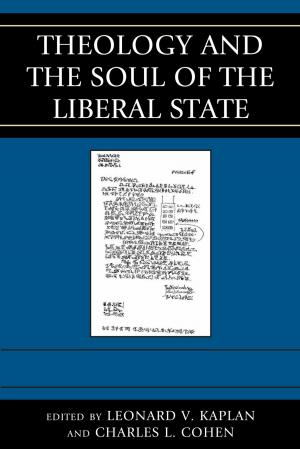Obama and the Emergence of a Multipolar World Order
Redefining U.S. Foreign Policy
Nonfiction, Social & Cultural Studies, Political Science, International, International Relations, Government| Author: | Chris J. Dolan | ISBN: | 9781498572941 |
| Publisher: | Lexington Books | Publication: | November 15, 2018 |
| Imprint: | Lexington Books | Language: | English |
| Author: | Chris J. Dolan |
| ISBN: | 9781498572941 |
| Publisher: | Lexington Books |
| Publication: | November 15, 2018 |
| Imprint: | Lexington Books |
| Language: | English |
This book argues that critical international and domestic crises, such as the U.S. war in Iraq and the Great Recession, forced President Barack Obama to readjust U.S. foreign policy after over 70 years of American hegemony and defending the global status quo. It examines the range of external pressures and challenges brought on by an increasingly multipolar international system, shifting domestic political forces, and limited foreign policy choices. The book provides an overview of the extent of foreign policy change and continuity in Obama’s foreign policy toward Europe, Asia and the Pacific, and the Middle East. The book assesses domestic and international pressure points in the wake of the 2003 U.S. invasion of Iraq and the Great Recession that shaped and defined Obama’s foreign policy preferences. The war in Iraq and the Great Recession, in addition to rising economic inequality and hyper-partisanship at home, emerging markets in Asia and the rise of China, and Russian resurgence in Europe and the Middle East, would determine and constrain the extent to which Obama was able to lead U.S. foreign policy and the foreign policymaking process. These ultimately contributed to a more scaled-back and limited U.S. role in the world during Obama’s presidency, culminating in the 2016 presidential election of Donald Trump who promised to turn the U.S. away from globalization and questioned longstanding U.S. alliances. In the end, the theme of “nation-building here at home” under Obama gave way to “America First” under Trump.
This book argues that critical international and domestic crises, such as the U.S. war in Iraq and the Great Recession, forced President Barack Obama to readjust U.S. foreign policy after over 70 years of American hegemony and defending the global status quo. It examines the range of external pressures and challenges brought on by an increasingly multipolar international system, shifting domestic political forces, and limited foreign policy choices. The book provides an overview of the extent of foreign policy change and continuity in Obama’s foreign policy toward Europe, Asia and the Pacific, and the Middle East. The book assesses domestic and international pressure points in the wake of the 2003 U.S. invasion of Iraq and the Great Recession that shaped and defined Obama’s foreign policy preferences. The war in Iraq and the Great Recession, in addition to rising economic inequality and hyper-partisanship at home, emerging markets in Asia and the rise of China, and Russian resurgence in Europe and the Middle East, would determine and constrain the extent to which Obama was able to lead U.S. foreign policy and the foreign policymaking process. These ultimately contributed to a more scaled-back and limited U.S. role in the world during Obama’s presidency, culminating in the 2016 presidential election of Donald Trump who promised to turn the U.S. away from globalization and questioned longstanding U.S. alliances. In the end, the theme of “nation-building here at home” under Obama gave way to “America First” under Trump.















